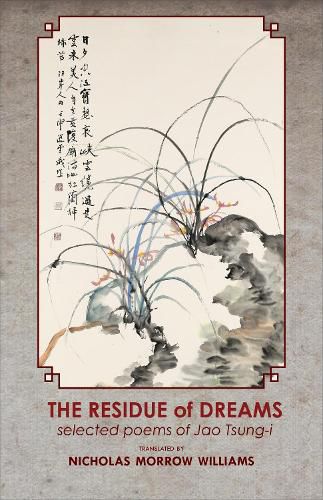Readings Newsletter
Become a Readings Member to make your shopping experience even easier.
Sign in or sign up for free!
You’re not far away from qualifying for FREE standard shipping within Australia
You’ve qualified for FREE standard shipping within Australia
The cart is loading…






The Residue of Dreams is the first English-language publication of the classical-style poems of Jao Tsung-i (b. 1917), a prominent artist-calligrapher, scholar-poet, and polymath living in Hong Kong. Jao’s poems in various traditional forms reflect the tumultuous history of twentieth-century China, but also demonstrate the enduring resonance of its classical culture. The Residue of Dreams contains a broad-ranging selection of Jao’s poems covering topics from the Second World War and his travels in Southeast Asia, to Nietzsche and the scribes of medieval Dunhuang. The poems give a vivid impression of one of the most erudite minds of our time, and show a new side of contemporary Chinese literature that has mostly been overlooked in English-language publications. All poems are presented both in the original Chinese text and in English translation, accompanied by scholarly notes with identification of many of Jao’s allusions and cultural references. The introduction places Jao’s poetry in the context of modern Chinese literary studies and elucidates its cultural background for general readers.
$9.00 standard shipping within Australia
FREE standard shipping within Australia for orders over $100.00
Express & International shipping calculated at checkout
The Residue of Dreams is the first English-language publication of the classical-style poems of Jao Tsung-i (b. 1917), a prominent artist-calligrapher, scholar-poet, and polymath living in Hong Kong. Jao’s poems in various traditional forms reflect the tumultuous history of twentieth-century China, but also demonstrate the enduring resonance of its classical culture. The Residue of Dreams contains a broad-ranging selection of Jao’s poems covering topics from the Second World War and his travels in Southeast Asia, to Nietzsche and the scribes of medieval Dunhuang. The poems give a vivid impression of one of the most erudite minds of our time, and show a new side of contemporary Chinese literature that has mostly been overlooked in English-language publications. All poems are presented both in the original Chinese text and in English translation, accompanied by scholarly notes with identification of many of Jao’s allusions and cultural references. The introduction places Jao’s poetry in the context of modern Chinese literary studies and elucidates its cultural background for general readers.